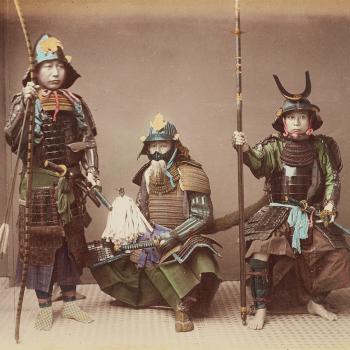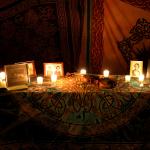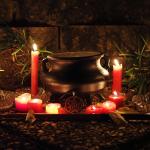 Holidays lasting three days or longer are not uncommon in the Athenian calendar, and it sometimes seems to me like it’s the rule rather than the exception. I’ve never done a statistical analysis of it, so I couldn’t say for a certainty, but there are a heck of a lot of these multi-day celebrations. The whole calendar is a daunting thing, and it seems like there’s a holiday or observance every other week. There’s no way anyone could celebrate everything and also have a life or a job, so you’ve got to pick and choose.
Holidays lasting three days or longer are not uncommon in the Athenian calendar, and it sometimes seems to me like it’s the rule rather than the exception. I’ve never done a statistical analysis of it, so I couldn’t say for a certainty, but there are a heck of a lot of these multi-day celebrations. The whole calendar is a daunting thing, and it seems like there’s a holiday or observance every other week. There’s no way anyone could celebrate everything and also have a life or a job, so you’ve got to pick and choose.
Anthesteria is a three-day Dionysia and if you look at what went on back in Classical Greece, you’ll see that it’s like a whole passel of holidays in one. There were drinking contests, costumes, parties with friends, and everything you might expect from a holiday in honor of the god of wine. Back in the day, wine was stored in these enormous jars to ferment and this was the time of year to bring the new wine up out of the ground. They also buried their dead in these same jars, so sometimes you pulled up grandma instead of this year’s vintage. So it was not only a holiday for drinking and shenanigans, but a feast of the dead as well. That was the biggest part of the holiday. There were a lot of traditions and superstitions about the dead in Classical Greece, who are supposed to walk the Earth at this time. Libations were made, food was set out for the dead, and most of the temples were closed. Parts of the holiday were quite somber and serious. In addition to all this, it’s also a springtime festival of flowers. Everything, even the children, had been decorated with flowers. Little ones who had turned three years old by this time got little wine cups and drank their first wine (watered down, of course) as they were made official members of the family.
Very little of this has anything to do with what we decided to do for our Anthesteria. Part of our practice is intentional watching of certain movies at particular times of year. For Anthesteria, we chose to watch the Battlestar Galactica miniseries. It’s a tragedy if I’ve ever seen one. The most cheerful parts include the cancer diagnosis of a main character and a nuclear holocaust. The series pretty much goes downhill from there. When watching intentionally, we try to immerse ourselves in the story, drink, and make libations as we watch without much commentary. This isn’t the only time of year we do intentional watching and there are several movies with which we do this. 300, J.J. Abrams’ Star Trek reboot, The Lord of the Rings series, Avengers, and the Harry Potter movies are all cathartic for us in different ways, and watching them intentionally honors that part of the relationship we have with Dionysos.
Our resident priestess of Dionysos is my dear friend, Rose, so this holiday is kind of her thing. Lately, this particular approach hasn’t been doing it for her and it’s not really been flipping the spiritual switch for the rest of us, either. So we decided to poke it with a stick to see why or if there’s a way we can change how we do things to make it work. She says: “The primary guise of Dionysos that calls to me is his role as storyteller and theater and exstasis and catharsis and so what I want to do is celebrate and indulge in that, specifically.” I can get behind that 100%, but what we were doing still wasn’t Anthesteria and it still wasn’t doing what we wanted it to.
Rather than looking at the Athenian calendar and trying to reproduce the holiday that comes up, I would much rather do what we are already inclined to or called to do and then find a name for it. More often than you might think, there’s already an ancient name for what we want to do anyway. In this case, Lenaia was it. It’s a theater-centered Dionysia around January/February. We’re still in negotiations about what to watch and we had already decided that it didn’t have to be a tragedy. For me, anyway, calling it Lenaia divorces what we are already inclined to do from an association with the feast of the dead and the need to make tragedy central to the celebration. Tragedies were a late addition to Lenaia, which was originally a competition for comedies. Satyr plays, for some reason, were left out. But we don’t have to do anything the ancients did, so if we want to watch Avengers with a bottle of wine and call it Lenaia, we can do that. Heck, we can watch Henry V with a bottle of Polish vodka and call it Susan if we want.
Rose just wants to call it a Dionysia, Sophia is lukewarm about “Lenaia,” and Isildae (Sophia’s old man) probably doesn’t care what we call it. He values the intentional watching as we all do, but the name on the box isn’t as important to him as doing the thing as far as I can tell. I’m pretty sure I’m the only one of us that likes Lenaia as a name. I may lose this fight — and by “fight,” I mean “civilized grownup conversation,” because that’s how we roll. Last time, I mentioned that our group has a smidge of California Buddhism in our theological/philosophical mix and for me, that means non-attachment to winning the argument in favor of doing what’s right for us as a whole. In other words, I may have to let it go and just call it a Dionysia. That’s what it is and we’ve already decided not to call it what it isn’t, so that’s progress. The important thing is that we honor that relationship to Dionysos and strengthen it in what ways we can, even if we do call it Susan.
Making Light is an occasional column by Hellenic polytheist Sunweaver. Follow it via RSS or e-mail!

















